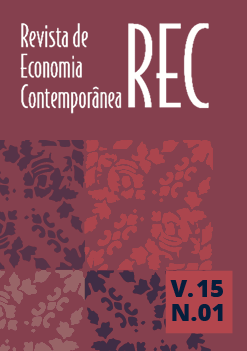Firmas Heterogêneas e Exportações: Uma Resenha à Luz das Evidências Brasileiras [Heterogeneous Firms and Exports: A Review based on Brazilian Evidences]
Keywords:
modelos de comércio, competição Imperfeita, economias de escala, firmas heterogêneas, produtividade, histerese [models of trade, imperfect competition and scale economies, heterogeneous firms, productivity, hysteresis]Abstract
Esse artigo procura retratar o desenvolvimento da literatura empírica, em comércio internacional, sobre os determinantes das exportações e produtividade aplicada ao caso brasileiro. Para isso, discute sob a perspectiva dos modelos de comércio para firmas heterogêneas, alguns dos principais resultados da literatura internacional e nacional relativos às hipóteses de custos de entrada e histerese nas exportações, autosseleção para exportações e aprendizado pelas exportações, além da relação entre liberalização comercial e produtividade das firmas. Em termos gerais, o trabalho conclui que a literatura nacional segue de perto os resultados apresentados pela literatura internacional. Esses resultados favorecem a aceitação das hipóteses de histerese, de autosseleção e aprendizado pelas exportações. Porém, indica que dificilmente ocorreu para o caso brasileiro o fenômeno de realocação industrial, teoricamente considerado pela literatura, e seus consequentes impactos sobre a evolução da produtividade da indústria brasileira.
===============
This article tries to portray the development of the empirical literature on the determinants of trade exports and productivity applied to the Brazilian case. For this, we argue, from the perspective of trade models for heterogeneous firms, some of the main results of national and international literature relating to the hypothesis of entry costs and hysteresis in exports, self-selection and/or learning by exports and the relation between trade liberalization and productivity of firms. Overall, the paper concludes that the national literature closely follows the results reported by international literature. These results favor the acceptance of the hysteresis hypothesis, self-selection and learning by exports. However, the phenomenon of industrial reallocation, theoretically predicted in the literature, and their consequent impacts on the evolution of the productivity of Brazilian industry, did not occur in the Brazilian case.


